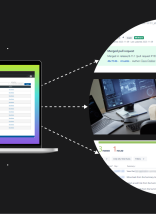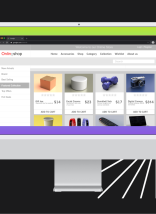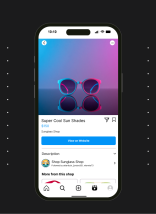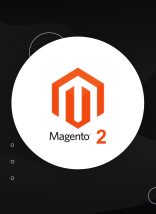Does your organization use a Customer Relationship Management (CRM) system? One like Salesforce, for example? If so, you may be wondering whether it’s worth it to integrate that platform with your new website.
Doing so does add to the technical complexity of your web development project. It also ties you to the software you’re already using. But, let’s assume you don’t have any immediate plans to change to a different CRM. If that’s the case, it’s a good idea to use as many tools as you can on your new website. They can be as intricate as a custom app that integrates contact data with website forms. Or they could be as simple as a plug-in. Whatever elevates your website, you should use.
You can do some of the same things without coding your website to connect to the CRM. But, it’s smarter to make them work together. Here are three of the biggest reasons why.
#1 Easily Maintain a Single Contact Management Solution
Your website can help you gather new customers and contacts. It can also help you to further relationships you already have with those in your network. You could keep them organized in separate lists or databases. Or, you could maintain a single CRM solution.
If you’re going to war, one versus many isn’t an ideal situation (unless you’re Jon Snow). In this case, one solution is all you need and far less work. It’s easier and more cost-effective to maintain. Sure, it’s possible to translate contacts from one platform to another. But, there are better ways to spend your time. Connecting your CRM to your website allows data to move from Point A to Point B with ease. No extra, unnecessary steps involved.
#2 Better Data Accuracy for Contacts and Customers
Moving customer contact data between different platforms opens the door to many problems. Beyond draining time and resources, it also invites errors into the process. Phone numbers and email addresses are being typed or converted from one kind of entry to another. Issues can and will arise, no matter how careful you are.
By turning your website and CRM platform into one entity, you make all your data more accurate. That has real-world implications. This can be especially helpful to sales reps or customer service personnel. They often need up-to-date details of prior interactions at their fingertips. Combining your website and CRM platform makes providing that sales tool possible. You can adjust your CRM records in real-time. Therefore, you don’t have to worry about losing conversions or missing time-sensitive opportunities. You can cross that stress right off your list.
#3 More Revenue for Your Organization
If you are already using Salesforce or another CRM, it’s because you want to gain revenue and save money. Your website should contribute to these goals rather than pull you away from them.
A strong CRM system will help you with a wide variety of tasks. You’ll be able to identify more sales opportunities. Relationships with existing clients and customers will have room to grow. And you’ll close more business at higher margins. You can use parts of your website as an extension of the CRM software. This allows for better data and stronger reporting. The end result will be more revenue for your company or organization. This makes both your website and your CRM system more valuable. United as one, they are stronger than they would be as independent entities.
Get More From Your Website and Your CRM
The website/CRM relationship is a special thing. Getting access to real-time information in a more usable format is the real beauty of it all. Isn’t that what good web development is all about? Of course it is. Are you looking to make your organization more efficient, online and off? Contact the web design and programming team at Atlantic BT today. See how we can help.









